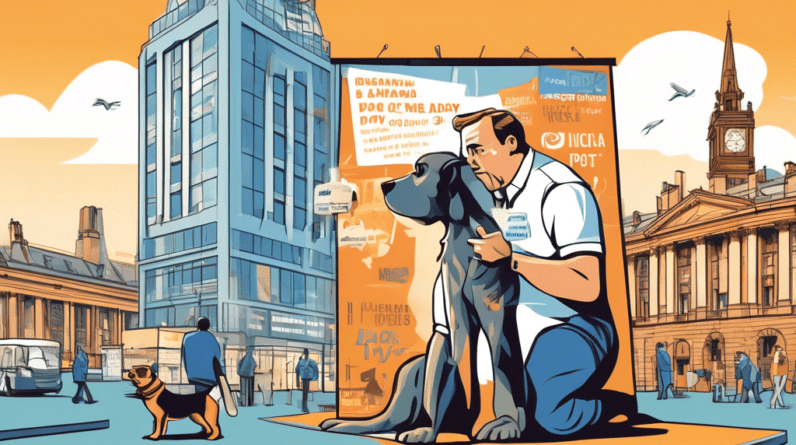
A Dog Worth $150,000: Breaking Down the Economics of Elite Breeds
The world of canine companionship is vast and varied, ranging from the humble mutt rescued from a shelter to meticulously bred pedigrees with price tags that could rival a luxury car. Yes, you read that right – a single dog can cost upwards of $150,000. But what justifies such an astronomical price? Is it simply a status symbol, or are there tangible factors contributing to this six-figure sum? Let’s delve into the fascinating economics of elite dog breeds and explore what makes certain furry friends so incredibly valuable.
Bloodline and Lineage: The Foundation of Value
Just like a prized racehorse or a champion show dog, lineage plays a crucial role in determining a puppy’s worth. Elite breeders dedicate years, sometimes decades, to carefully curating bloodlines that consistently produce dogs with exceptional conformation (physical attributes aligning with breed standards), temperament, and health.
These breeders meticulously research pedigrees, often going back several generations, to identify dogs with desirable traits. They prioritize breeding from champions – dogs that have excelled in conformation shows, working trials, or other breed-specific competitions. This rigorous selection process ensures that the puppies they produce are not only beautiful examples of their breed but also possess the genetic potential to excel in their chosen field, whether it be the show ring, working field, or simply as loving companions.
The High Cost of Responsible Breeding
The pursuit of breeding excellence doesn’t come cheap. Reputable breeders invest heavily in the health and well-being of their breeding dogs, sparing no expense to provide optimal care:
- Health Testing: Responsible breeders conduct extensive health screenings on their dogs to identify potential genetic conditions that could be passed down to offspring. These tests can include evaluations for hip and elbow dysplasia, eye disorders, heart conditions, and breed-specific genetic markers. The cost of these tests can quickly add up, especially for breeders who prioritize comprehensive screening.
- Veterinary Care: Routine veterinary check-ups, vaccinations, and preventative medications are essential for maintaining the health of breeding dogs. Additionally, breeding females may require specialized veterinary care during pregnancy and whelping, including ultrasounds, emergency cesarean sections, and post-natal care for both the mother and puppies.
- High-Quality Nutrition: Breeding dogs require a nutrient-rich diet to support their overall health and the demands of pregnancy and lactation. Premium dog food formulated for breeding animals can be significantly more expensive than standard commercial diets.
- Show and Competition Expenses: To maintain the prestige of their breeding program, many breeders actively compete with their dogs in conformation shows, working trials, or other breed-specific events. These competitions involve travel expenses, entry fees, professional handling fees, and the cost of maintaining the dog’s show-ready condition.
The cumulative cost of these expenses directly impacts the price of puppies produced by ethical, responsible breeders. While a high price tag doesn’t automatically guarantee quality, it does reflect the significant financial investment breeders make to ensure the health, well-being, and breed betterment of their dogs.
Beyond the Price Tag: The Intangible Value of a Well-Bred Dog
The monetary value attached to an elite breed puppy only tells part of the story. Beyond the pedigree and price tag lies a wealth of intangible benefits that come with owning a dog bred for temperament, health, and purpose:
- Predictable Temperament: Reputable breeders prioritize temperament in their breeding programs, selecting dogs with stable, even-keeled personalities. This focus on temperament increases the likelihood of producing puppies that are confident, sociable, and adaptable, making them well-suited for family life and various lifestyles.
- Reduced Risk of Genetic Health Issues: By conducting extensive health testing and carefully selecting breeding pairs, responsible breeders aim to minimize the risk of their puppies inheriting genetic health conditions. This translates to potentially lower veterinary costs and a longer, healthier life for the dog.
- A Dog with a Purpose: Many elite breeds excel in specific roles, whether it be herding livestock, assisting law enforcement, participating in canine sports, or providing companionship as therapy dogs. When you choose a dog bred for a specific purpose, you gain a companion that is naturally inclined towards those activities, making training and integration into your lifestyle smoother and more rewarding.
The Allure of Rarity and Exclusivity
In some cases, the astronomical prices associated with certain breeds are driven by simple supply and demand. Rare breeds, especially those with limited gene pools or challenging breeding programs, command a premium price due to their exclusivity. The allure of owning a unique and sought-after breed can be a significant factor for some buyers, further inflating prices in the market.
The Dark Side: Puppy Mills and Unethical Breeding Practices
The high demand for certain breeds, particularly those with designer hybrid names, has unfortunately fueled the rise of unethical breeding practices. Puppy mills, large-scale commercial breeding facilities that prioritize profit over animal welfare, often sell puppies at inflated prices, capitalizing on the popularity of specific breeds without regard for the health or well-being of their dogs.
It’s crucial for potential dog owners to be aware of the signs of unethical breeding practices and to avoid supporting these operations. Researching breeders thoroughly, asking questions about their breeding practices, and insisting on meeting the puppy’s parents and seeing the conditions in which they are raised are essential steps to ensure you are bringing home a healthy, well-adjusted puppy from a responsible source.
Beyond the Dollar Sign: The True Value of Canine Companionship
While the economics of elite dog breeds can be complex and multifaceted, it’s essential to remember that a dog’s true worth extends far beyond its price tag. Whether you choose a pedigreed pup from a reputable breeder or open your heart and home to a mixed breed from a shelter, the unconditional love, companionship, and joy a dog brings to our lives are immeasurable. The bond we share with our canine companions transcends monetary value, enriching our lives in ways that cannot be quantified. Ultimately, the most valuable dog is the one that brings you the most happiness and becomes a cherished member of your family.






